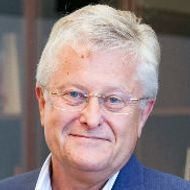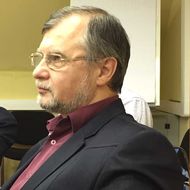- A
- A
- A
- ABC
- ABC
- ABC
- А
- А
- А
- А
- А
- HSE University
- Faculties
- Faculty of Social Sciences
- School of Political Science
- News
- 24th IPSA World Congress of Political Science
3 Krivokolenny Pereulok, Moscow, 103070.
Phones:
8 (495) 772-95-90 *22833,
8 (495) 772-95-90 *22448
Fax: 8 (495) 772-95-90 *12556
Email: politfac@hse.ru
Washington: Free Russia, 2018.
Petrov N., Hale H. E., Lipman M.
Russian Politics. 2019. Vol. 4. No. 2. P. 168-195.
In bk.: Oxford Research Encyclopedia of Politics (Living Edition). Oxford University Press. P. 1-20.
Sorokina A., Maximenkova M., Kasamara V.
Political Science. PS. Высшая школа экономики, 2019. No. 71.
3 Krivokolenny Pereulok, Moscow, 103070.
Phones:
8 (495) 772-95-90 *22833,
8 (495) 772-95-90 *22448
Fax: 8 (495) 772-95-90 *12556
Email: politfac@hse.ru

24th IPSA World Congress of Political Science
On July 25 the panel ‘Concepts and Measurements in the Study of Political Transformations’ dedicated to new conceptual developments in political science, was held. The panel was chaired by Andrei Melville, Dean of the Faculty of Social Sciences, who presented a report on new approaches to the study of state solvency and regime changes. HSE Tenured Professor Mikhail Ilyin made a presentation on new approaches to the morphological analysis of political development, co-authored by Anastasia Samorodova, student of the master's programme in Applied Politics. Mark J. Kesselman, Professor Emeritus at Columbia University, was the panel discussant.
A report entitled ‘New Approaches to Regime Classification: Alternatives to Diminished Subtypes?’ by Ekim Arbatli, Assistant Professor at the School of Political Science, was also presented at the panel by Andrei Melville. The report presents a critical analysis of modern literature on the classification of regimes and an attempt to assess the potential of new approaches in improving political regime analysis.
Professor Mikhail Ilyin also spoke on ‘Westphalian Systems: Historical and Theoretical Models of Interstate Political Order’. The report has been co-authored by doctoral students Yulia Baskakova and Ivan Kochedykov. This report is about the influence of individual discourses on the nature and logic of cross-country interactions.
Alexander Poroshin, doctoral student of the School of Political Science, presented his research on ‘The Impact of Constitutional Design on the Durability of Single-Party Dominance’ at the panel ‘Political Organization of Divided Societies’. This research is dedicated to a comparative analysis of the durability of single-party dominance in parliamentary and presidential republics. Alexander notes that ‘The integration of academic communities from all over the world, great number of participants and the creation of a global political space makes this congress a unique event’.
Varvara Vasileva, Associate Professor at the School of Political Science, presented the report ‘How to Measure Political Corruption: Comparing Corruption Markets in Post-Communist European Countries’ at the panel ‘The Comparative Study of Political Corruption’. The report, co-authored by Anton Vorobyev, Research Fellow at the Centre for Transport Economics, focuses on a new index which measures the dependence of the state from corruption, and potential corruption in various spheres of decision-making.
Anastasia Samorodova, student of the master’s programme in Applied Politics spoke on ‘The Effectiveness of Reform Coalitions Activities in EU Candidate Countries: The Factor of EU Accession Conditionality’ at the panel ‘Transfer Policy: Political Actors and Institutional Contexts’. The report covers the impact of the requirements of the European Union on the activities of the ‘coalition of reforms’ in candidate and acceding countries.
Yana-Maria Priestley, student of the master’s programme in Applied Social Psychology, presented a report on ‘Joint Development of Political Attitudes and Social Networks Among Students’ at the panel ‘A Sentimental Democracy?’. The report is about the mutual influence of political attitudes of students and the relationship among them.
Evgenia Skoptsova, student of the master’s programme in Applied Politics spoke on ‘Public Financing of Political Parties: Incentives for Incumbent’ at the panel ‘Some Unforeseen Effects of Party and Campaign Finance’. In her presentation, Evgenia described a theoretic game model that explains the mechanisms of distribution of state financing for political parties.
Arthur Yusupov, doctoral student at the School of Political Science spoke at the section ‘Dilemmas of Representation’. He made a presentation on ‘Non-territorial Political Entities in Modern Federal States (Cases of Belgium and Switzerland)’, where he looked at an analysis of political participation of non-territorial political entities in modern federal states. Arthur says that ‘in addition to the research issues, the congress programme also included some very impressive cultural events. The organizers arranged special and memorable performances, concerts and various themed evenings every day. In addition to classical music, the participants attended a show of Polish folk dances and tasted traditional cuisine.’
Ilya Zarankin, doctoral student at the School of Political Science presented his report ‘Ministers' Recruitment in States with Similar Politico-administrative Systems of the Executive Power (by the Example of France and Russia)’ at the panel ‘Novel Approaches to Studying Elites’. In his research Ilya analyses the reasons for differences in personnel preferences in the appointment of Ministers in Russia and France, and explains these differences, particularly by the different role of parties in the political systems of these countries.
As part of of the round table ‘The IPSA-APSA Summer School Experience – Prospects for Cooperation’ Professor Andrei Melville also announced the first IPSA-HSE international school on the methods, concepts and dimensions in political science. The school will take place in St. Petersburg in July 2017.
- About
- About
- Key Figures & Facts
- Sustainability at HSE University
- Faculties & Departments
- International Partnerships
- Faculty & Staff
- HSE Buildings
- Public Enquiries
- Studies
- Admissions
- Programme Catalogue
- Undergraduate
- Graduate
- Exchange Programmes
- Summer Schools
- Semester in Moscow
- Business Internship
-
https://elearning.hse.ru/en/mooc/
Massive Open Online Courses
-
https://www.hse.ru/en/visual/
HSE Site for the Visually Impaired
-
http://5top100.com/
Russian Academic Excellence Project 5-100
- © HSE University 1993–2025 Contacts Copyright Privacy Policy Site Map
- Edit

